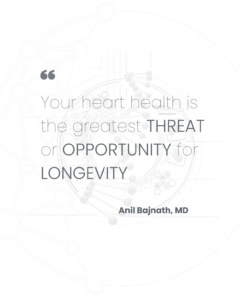Have you ever been frustrated that your doctor prescribed the same medication to you, even though you never felt relief? Have you ever wished for a diagnosis or treatment tailored specifically to your own unique body and lifestyle? Precision Medicine could be the solution! It is an emerging approach for disease prevention and treatment that takes into account individual variability in genes, environment, and lifestyle for each person. This week on the blog we will explore the possibilities of precision medicine and what it could mean for our health.
BACKGROUND ON PRECISION MEDICINE
The healthcare community has come to a consensus that a one-size-fits-all approach to medicine is no longer effective in treating the vast complexities of modern diseases. It simply cannot take into account all of the factors that contribute to an individuals’ health, from genetics and lifestyle to environment and nutrition. As such, precision medicine has emerged as an innovative approach to health care tailored specifically for each individual patient. Precision Medicine focuses on identifying biomarkers, which are defined as biological characteristics or features that can be used to identify a disease state, diagnose a condition or predict an outcome. These biomarkers are being studied in detail to identify genetic factors that may influence responses to drugs, treatments, lifestyle, and environmental factors. This type of individualized medicine is seen as the future of healthcare, as it promises to be more effective in preventing and treating diseases than traditional methods.
PROBLEMS WITH ONE-SIZE-FITS-ALL MEDICINE
One of the major problems with traditional medicine is that it overlooks individual differences in genetic makeup and lifestyle. This has led to many ineffective treatments and even misdiagnoses, as doctors are unable to take into account each patient’s unique biology when it comes to prescribing medications or diagnosing diseases. Furthermore, there is evidence that certain medications may have different effects in different populations, due to a variety of genetic and lifestyle factors. In addition, many traditional treatments are often expensive and can have serious side effects that may not be immediately apparent until long after the treatment has begun.
DOES PRECISION MEDICINE NEGLECT “EVIDENCE-BASED” TREATMENTS?
No! Precision medicine does not negate the importance of evidence-based treatments, but rather seeks to reconcile them with personalized approaches. It is important to use evidence-based treatments whenever possible, however precision medicine may be able to identify which treatments will be most effective for a given patient.By taking into account an individual’s genetic makeup and lifestyle, precision medicine can provide more precise and effective treatments for that patient, without sacrificing safety or efficacy.
This approach also seeks to reduce costs associated with treatments, as doctors are able to make more informed decisions with regards to which treatments will be most effective for a particular patient.
HOW PRECISION MEDICINE WORKS
Precision Medicine works by using a combination of advanced medical technology and analytics tools to analyze a patient’s data. First, doctors collect an individual’s medical history, symptoms and lifestyle. This information is then combined with genetic data from a patient’s DNA to create a unique “map” of the person’s health. From this map, doctors can better understand what treatments may be most effective for that particular patient. Precision Medicine also looks at environmental factors such as air quality or stress levels, which can influence a person’s health. By taking into account all of these variables, doctors are able to create more customized treatment plans for each individual patient.
TIME, DOSAGE, AND INDIVIDUALITY
Just like there are 24 hours in a clock and 365 days in a year, each person is different when it comes to their body’s response to medications. That is why precision medicine takes into account the specific time that a drug needs to be taken as well as the dosage needed for an individual patient. By using biomarkers and genetic information, doctors can more accurately predict a patient’s response to certain medicines and tailor it to their specific needs.
PREVENTION IS KEY
Precision Medicine is not only being used to treat diseases, but also to understand the root cause of them and prevent them from occurring in the first place. It can be used to identify people who are at higher risk for certain conditions so that preventive measures can be taken before it’s too late. For example, precision medicine may be able to pinpoint genetic markers that put people at greater risk for certain types of cancer. This would allow doctors to customize early screening tests and treatments for those patients, potentially preventing the disease before it even starts.
FUTURE OF MEDICINE
The possibilities of precision medicine are still being explored, but one thing is certain: this new approach to health care promises to revolutionize the way diseases are diagnosed and treated.
INSTITUTE FOR HUMAN OPTIMIZATION – OUR APPROACH
At the Institute for Human Optimization, we use our signature Precision & Longevity Medicine approach to help you achieve optimal health. Our individualized multi-omic approach focuses on prevention and utilizes advanced technology to increase healthspan and lifespan. It takes into account the unique genetic makeup of every patient, as well as their lifestyle, environmental factors and medical history. Our integrated approach allows us to develop personalized plans for each individual patient that takes into account all factors affecting their health.
By leveraging the latest state-of-the art technology in genomics, testing, biomarkers, and imaging in conjunction with advanced therapies , we strive to help each patient achieve their health and wellness goals. Founded by Anil Bajnath, MD, you can be sure that you are getting the most effective, personalized care possible. Contact us today to learn more about how our approach to Precision & Longevity Medicine can help you reach your optimal health and longevity.
References
- FDA Precision Medicine
- https://www.cdc.gov/genomics/about/precision_med.htm
- https://obamawhitehouse.archives.gov/precision-medicine
- https://www.nih.gov/about-nih/what-we-do/nih-turning-discovery-into-health/promise-precision-medicine


